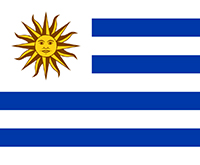“If we didn’t look after ourselves, we were done for…”
Three former inmates of the Brens women’s concentration camp, who were detained from 1942-44, recall their experiences
The concentration camp for women in Brens, southwest France, existed from 1942 to 1944. Three women from different backgrounds – Arlette, Nuria and Angelita – recount the time they spent in the camp. Arlette was picked up at random by the Vichy police. Angelita was arrested for conspiracy against Marshal Pétain, while Nuria fell victim to her status as a Spanish refugee. The three women were sent to Brens, where they co-habited with women from all over Europe separated into wooden huts by nationality.
A tribute to the solidarity and moments of friendship that are essential to surviving such an ordeal.
Camp Sisterhood (Soeurs de Camp) received special commendations at the Prix Europa and the Prix Italia and won the Prix Bohemia in 2013.
Benoît Bories is a radio documentary maker and a sound composer. He produces radio documentaries for France Culture, ARTE radio and RTBF as well as other non-French speaking radio stations. With Charlotte Rouault, he founded Faïdos Sonore, a sound production collective who makes radio documentaries. For the last three years, he has also been making sound creations for live performances, installations and theater.
Charlotte Rouault is a French freelance radio documentary-maker. She has worked with France Culture, ARTE radio, RTBF and RTS. In 2009, with Benoît Bories, she created Faïdos Sonore, where she developed her documentary approach in parallel with a will to transmit and share, through workshops and training.


































